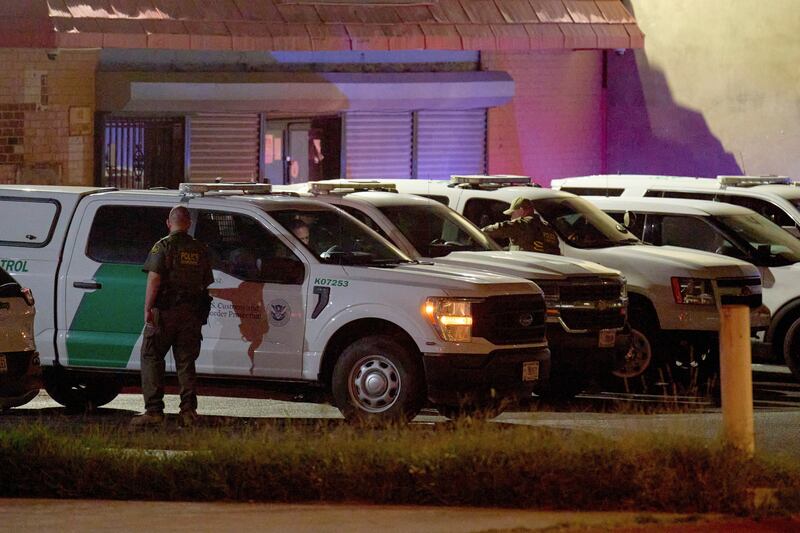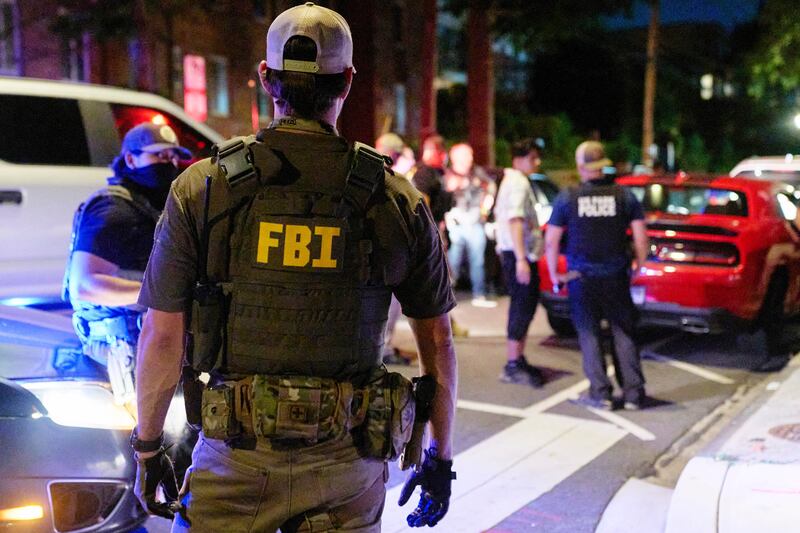WASHINGTON — President Donald Trump teased plans to ask Congress for a “relatively small amount of money” to bolster safety operations in the nation’s capital just days after deploying the National Guard to crack down on city crime.
During remarks at the Kennedy Center on Wednesday, Trump told reporters he would send Congress a crime bill specifically targeted toward Washington, D.C., that could allow his federal oversight to extend past the 30-day allotment currently in place. Trump also pointed toward funds that would be used to “fix up” the capital, such as fixing potholes in the street and cleaning up parks.
“We’re going to need a crime bill that we’re going to be putting in, and it’s going to pertain initially to D.C.,” Trump said. “We’re going to be asking for extensions on that, long-term extensions, because you can’t have 30 days.”
The suggestion of increased funding for the city comes after lawmakers inadvertently cut $1.1 billion from the city’s budget earlier this year — and have failed to reverse that legislative mishap despite promising to do so in March.
The budget setback occurred when Congress passed a temporary spending bill to keep the government funded at 2024 levels until the end of the fiscal year. But lawmakers forgot to include language that exempts the nation’s capital from spending freezes, resulting in a $1.1 billion shortfall.

D.C. Mayor Muriel Bowser has since moved funds around by invoking a 2009 federal law that gives the city power to unilaterally increase its city funding by as much as 6%. That way, Bowser contended, the city wouldn’t need to make personnel changes or affect public safety.
However, the city could still see major budget cuts after the Trump administration posted a grant notice earlier this week that would reduce D.C. security funding by 44% — despite the president saying he needed to federalize Washington because of its “out of control crime.”
Trump announced plans on Monday to federalize the D.C. police department, invoking a rarely used statute that allows the president to take control of the city’s law enforcement on a temporary basis. The order would expire in 30 days unless explicitly extended by Congress.
That’s unlikely to happen as it would require Democratic support in the Senate. As a result, Trump suggested he might look at other ways to extend federal presence in the capital without congressional approval.
One way to do that, he said, is by declaring a national emergency.
“If it’s a national emergency we can do it without Congress, but we expect to be before Congress very quickly,” Trump said.
“I don’t want to call a national emergency,” Trump noted, but said: “If I have to, I will.”
The latest threats highlight an ongoing challenge for D.C. officials, who have been trying to crack down on rising rates of youth crime. Since the beginning of 2025, juveniles have made up more than 50% of arrests related to carjacking, according to D.C. police. A majority of those arrests are made up of teens who are 15 and 16 years old.
Bowser has acknowledged the recent trends, even going so far as to create a special police unit in April tasked with responding to juvenile crime. Curfew zones for the city’s juveniles have also been put in place this week.
Trump also suggested D.C. is just the beginning of his efforts to crack down on crime in major cities, telling reporters on Monday that “we’re starting very strongly with D.C., and we’re going to clean it up real quick.”



